- Home
- Rachel Higginson
Constant Page 33
Constant Read online
Page 33
I couldn’t see anything beyond this truck. I couldn’t imagine anything but Foodie working out for me. And it wasn’t for lack of trying.
I thought about this all the time. Concerns, anxiety and the fear of failure kept me awake at night constantly. Most nights I couldn’t stop staring up at my dark ceiling, trying to reimagine my life without food or cooking or creating.
And I honestly couldn’t.
This was who I was.
Life could take everything else from me—my stable future, my expectations, my dream of becoming a noteworthy, decorated chef before I hit thirty, my last dollar… all of it.
But I would not give up on my goal of becoming the chef of my own kitchen.
I would cook out of trash cans in an alley if I had to.
Just kidding.
That was a metaphor.
Nobody would eat food made in trashcans.
“Vera?” Molly asked in that small, careful voice I was coming to realize meant she was trying not to startle me.
I blinked until the world around me came back into focus. I already knew what she was going to ask before the question formed in her mouth, so I cut her off at the pass. “I’m good.”
“You spaced out,” she stated the obvious, looking concerned.
I let out a sigh and told her the truth. “I’m freaking out. This is scary.”
One corner of her mouth lifted in a smug smile. “This truck is going to be amazing. Your food is going to be amazing,” she promised. “This city is going to be crazy for you. I predict lines down the block and hour long waits and rave reviews.”
I allowed a wobbly smile that didn’t feel real or honest. “Everything I’ve always wanted.” I turned away before she noticed the tears that threatened to spill from my eyes. Sarcasm wasn’t enough to mask the truth in my words. Those were the things I honestly wanted.
Or had wanted.
Once upon a time.
Before everything went to shit.
Now I wanted them again, but on a smaller scale. Instead of a gleaming, five-star kitchen, I was settling for a shiny thirty-foot galley on wheels. Instead of a fully staffed, well-oiled machine, I was giving up my original ambitions and taking on this endeavor solo.
I hadn’t buried myself in massive student loan debt to cook out of a rescued Airstream that I’d gone into even more debt for. But four months ago, I’d moved back home with sharpened skills, an intense year of experience and Plan B.
Foodie was Plan B.
I’d put myself through culinary school to become a world renowned chef. I’d fought and battled my way through a male dominated profession to work in the best restaurants around the world. I’d slaved and sacrificed to build a resume and reputation that would open doors to any kitchen I wanted. And I’d hoped and prayed that I would be able to learn from the best chefs, to be accepted in their circles and maybe even, hopefully, someday be considered one of them. I’d promised myself awards, Michelin stars and industry-wide respect.
Only that hadn’t happened. My dreams had been delayed because I made a poor decision and got distracted.
I still felt distracted.
No matter how hard I’d worked over the last year to heal, I still felt the nagging pressure on the back of my neck, the hitch in my breathing and sickly feeling deep in the pit of my stomach.
I still felt the presence I couldn’t ignore hovering just over my shoulder. A dark specter I couldn’t quite see… couldn’t quite forget.
This truck, as beautiful and inspiring as she was, didn’t represent the person I thought I would become. She was the culmination of everything that I’d let happen to me. She was dreams abandoned and futures lost.
And she was all I had left.
Bells jingled in the distance, drawing my attention toward the shop I shared the parking lot with—Cycle Life— when the owner stepped outside. I smiled at him since he was one of my favorite people on the planet. A small business guru, a total hipster in denial and my older brother, Vann was everything I looked up to and admired. He held up his hand against the blinding sun and started walking toward Molly and me with a nod.
Molly returned a halfhearted jerk of her chin and then went to stand on the ladder so she could finish the last touches on Foodie. She was all confidence and comfortable-in-her-own-skin until she had to show someone else her work, then she became as insecure and unsure as the rest of us mere mortals.
“Hey, Vann,” I greeted before he’d made it to the shade of the awning.
He gazed seriously, assessing Molly’s handiwork. Usually, Molly didn’t have anything to worry about. Her art was always perfect, her talent moving and breathtaking to anyone lucky enough to see it. But my brother wouldn’t hold any punches, especially not for Molly. Molly and Vann were as close to being siblings as Vann and I were. “You got the name on it?”
Nervous energy tingled through me. “What do you think?”
Vann was super critical of every single situation he ever encountered. He had no filter. And he had no sense of empathy. He always said what he meant. And he meant what he said.
That made him an intolerable asshole the majority of the time.
Which meant his opinion was super important to me.
“Looks good, Vera. You’re a legit business now.”
“Hear that, Molly? I’m like legit.”
She turned toward us, balancing on the ladder rungs and smiled. “You’re impressed. Aren’t you, Vann? Go ahead and tell me how amazing I am.”
He waved her off but nodded in agreement. “I like it. I’d eat here.”
“I hope so,” I groaned. “I need at least one paying customer.”
Vann let out a low chuckle. “Oh, I didn’t say I’d pay to eat here. I just mean because it’s so close to the shop and mooching by parking in half of my lot. Plus, it’s run by family. For those reasons, I would stop by once in a while for a meal on the house.”
I gave him a look. “I can’t afford meals on the house. I can’t even afford meals that people are paying for yet.”
His face crumpled, disappointed. “Not even lunch?”
Giving his shoulder a shove, I shook my head. “All I have today is paint. But I’m happy to whip you up a bowl of red.”
“Barn Red to be exact,” Molly added helpfully.
“You’re such a smart-ass these days,” Vann said to my back. “You used to be so nice. Hey, Molly, remember when Vera used to be nice?”
Molly paused in her work again and looked down at me with pretend pity. I ignored the real emotion lurking in her sarcasm.
I could handle sarcasm.
I did not want to face the real stuff.
“It’s because she thinks she’s better than us,” Molly agreed. “She’s all world-traveled and cultured now. We can’t compare to Europe, Vann, no matter how awesome we are.”
“I love you guys,” I told them honestly. “Europe, despite how good the food was and how fantastic the fashion was and even how easy the public transportation was, cannot compare to you.” I paused with one foot on the step leading to the guts of my new business. “Have I told you about the architecture, though? They have buildings that are older than our entire country.”
“You’ve mentioned it,” Vann grumbled. “Once or twice.”
“Or three thousand times,” Molly added.
Smiling to myself I disappeared up the stairs of the truck and paused to check out the inside of my new venture.
I’d gone to one of the best culinary schools in America. I’d spent the last year of my life bumming around Europe tasting the best food and putting together the best flavor profiles. I had experience, education and a whole bunch of shattered dreams.
Europe had been safe and I’d been anonymous. Nobody had known anything about me or where I’d gone to school or who I’d dated before. I hadn’t had to worry about being blacklisted because of malicious rumors or turned down for a job because of the enemies I’d made.
But now that I was back home, I could
feel my past stalking me like a hungry alligator getting ready to spring. Working somewhere prestigious was no longer an option. Pursuing my dreams was no longer possible. So I had to come up with a contingency plan—another way to do what I loved and piece together my broken life.
Why not open a food truck?
Inside Foodie, everything gleamed in stainless steel. From the ceiling to the floor, the cabinets and refrigerators, the stove, fryer, and dishwasher—every single piece of my new kitchen shined. Looking at the countertops, I could see my blurred reflection in the flawlessly smooth surface. The lines of my freckled cheeks and narrow nose were unfocused and soft, hiding my makeup free face and tired, gray eyes. My messy hair mostly hidden underneath a black bandana, chestnut curls spilling down my back like Medusa’s snakes. Only wilder. And much frizzier. My formerly white t-shirt splattered with red paint and sweat from working hard. I was not my most attractive.
I looked more like me than I had in years.
Now to feel like me, too.
Tearing my eyes from an image that still made me uncomfortable, I marched over to the coolers that lined one corner of the small, narrow space and checked the thermostat. Despite my unconventional design, they were keeping the temperature evenly. Thank God.
I hadn’t brought food to store on the truck yet. To be honest, I still hadn’t finalized my opening night menu. I was months out of practice and terrified to make final decisions, petrified I would get it wrong or make the wrong thing or mess up. All my best recipes ping-ponged through my head along with the possibilities and potential failures. How to pick one out of all of them? How to know which one people were most likely to take a chance on? I was too overwhelmed to decide.
And on top of that, I needed to take the kitchen for a test run, to see what was possible in this confined space. I also had to decide what I would have to make beforehand at the commissary kitchen—the industrial kitchen I rented that was health code safe and rich with storage space.
My goal had been gourmet cuisine with street food flare. I’d even imagined my first food blogger or magazine write up to include exactly that phrasing. Now I was contemplating serving frozen french fries and hot dogs—I knew I couldn’t screw those up. Plus, they were tried and true crowd favorites.
If my efforts to revolutionize this section of downtown with fancy truck food failed, I always had the classics to fall back on.
But I wouldn’t.
Fisting my hands into determined balls of confident strength, I steeled my resolve for the umpteenth time. I had already failed as badly as possible. I had already crashed and burned.
Foodie wasn’t going to be a leap toward greatness, but it would be a step out of hell. It would be a lunge in the direction of salvation and the redemption for my first love—food.
Good food.
The best food.
I opened my eyes, not realizing I had closed them, and my gaze immediately fell on a white-washed square structure across the street. Most of the buildings lining the cobblestone plaza were tall, red brick and accented with iron. Lilou stood like a lone beacon of farmhouse fresh in a sea of early nineteenth century architecture.
The acclaimed restaurant was delicate and gentle while the other buildings in the plaza shouted loud, strong and imposing. Soft when everything surrounding it was hard and unyielding. Cultured when strobe lights poured from basement windows and heavy bass bounced around the plaza once darkness fell.
Lilou was the culmination of all my past dreams and forgotten ambitions. The kitchen was the best in the city. The reservation list was scheduled a month out. The wait staff was rumored to have to go through restaurant boot camp before they were even considered for employment. The owner, Ezra Baptiste, was a shrewd restaurateur famous for three successful restaurants all allegedly named after past girlfriends.
And the current chef? A legend in the industry. At thirty-two, he’d already earned a Michelin Star and the respect of every major restaurant critic, food blogger and worthy food and wine magazine across the country. He’d made executive chef of his first kitchen by twenty-five. By twenty-eight he’d been given the James Beard award for Outstanding Chef. By thirty-one he’d grabbed Lilou an Outstanding Restaurant award. Rumored to be a total ass and dictator in the kitchen, Killian Quinn’s dishes were inspired and fresh, perfect to the point of obsession, but most of all, his refined recipes and plate presentation were copycatted all over the country.
Or so I’d read in the latest issue of Food and Wine, and the hundreds of articles I’d perused online during my research once my brother offered his parking lot for Foodie—directly across the street from Lilou.
I’d watched Quinn’s rise to stardom closely during my culinary school days, fascinated by his luck and success. But over the last couple of years my interest in his career had faded along with the other important things in my life. Only when Vann mentioned my potential “competition” across the plaza did I remember Lilou and where it was located, forcing me to also remember the powerhouse chef that I would possibly share customers with.
I found myself gazing across the parking lot, admiring the simple design of Lilou; the subtle, simple banner that declared its famous name and the uncomplicated design aesthetic so different from my flashy, trendy truck across the street.
“He’s not my competition,” I mumbled to myself, swearing it like an oath.
And he wasn’t. Our clientele wouldn’t be the same. Or if they were, we’d be serving them at different times. He would get them for dinner service and I would lure them in later, after they’d been drinking and dancing all night.
I didn’t want his customer’s extravagant tips; I wanted their business when they left the nightclubs and made bad, late night decisions. Decisions that more than likely included searching for a late night, greasy fourth meal.
Killian Quinn offered them a once in a lifetime dining experience. I offered comfort food that would cure hangovers.
Lilou might be the precise image of everything I’d given up, of the dreams I’d pissed away and the life I could have had… but a restaurant like that wasn’t my competition.
So why did I feel so intimidated standing in its shadow?

 Constant
Constant The Rush
The Rush Reckless Magic
Reckless Magic Love and Decay, Episode Twelve
Love and Decay, Episode Twelve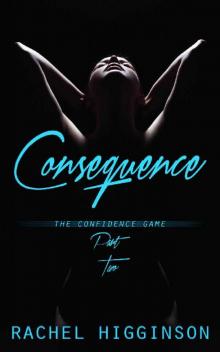 Consequence
Consequence Magic and Decay
Magic and Decay Love and Decay, Vol. Two
Love and Decay, Vol. Two Love and Decay, Episode Ten
Love and Decay, Episode Ten Love and Decay, Kane's Law
Love and Decay, Kane's Law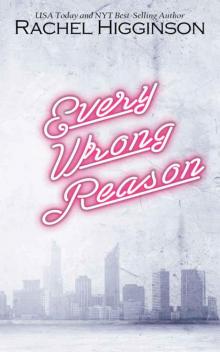 Every Wrong Reason
Every Wrong Reason Love and Decay, Vol. Four
Love and Decay, Vol. Four Love and Decay, Episode Seven
Love and Decay, Episode Seven The Difference Between Us
The Difference Between Us Starbright
Starbright Trailer Park Heart
Trailer Park Heart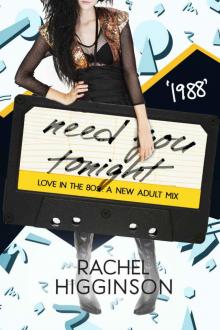 1988: Need You Tonight
1988: Need You Tonight The Reluctant King
The Reluctant King Love and Decay, Episode One
Love and Decay, Episode One Heir of Skies
Heir of Skies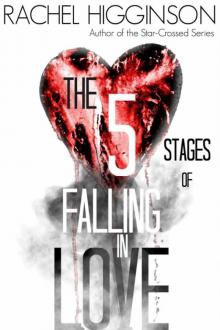 The Five Stages of Falling in Love
The Five Stages of Falling in Love Endless Magic
Endless Magic Love and Decay, Episode Eleven
Love and Decay, Episode Eleven Sunburst
Sunburst Breathless Magic
Breathless Magic Fateful Magic
Fateful Magic Crown of One Hundred Kings (Nine Kingdoms Trilogy Book 1)
Crown of One Hundred Kings (Nine Kingdoms Trilogy Book 1) Love and Decay, Boy Meets Girl
Love and Decay, Boy Meets Girl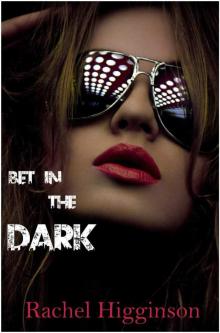 Bet in the Dark
Bet in the Dark Love and Decay, Episode Eight
Love and Decay, Episode Eight The Relentless Warrior
The Relentless Warrior Love and Decay, Episode Nine
Love and Decay, Episode Nine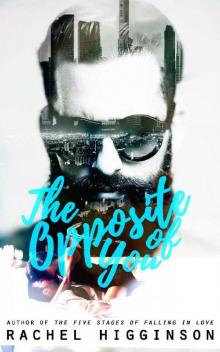 The Opposite of You
The Opposite of You The Redeemable Prince
The Redeemable Prince Heir of Secrets
Heir of Secrets Love and Decay, Volume One
Love and Decay, Volume One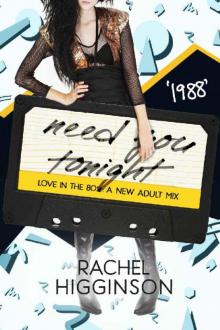 1988: Need You Tonight (Love in the 80s: A New Adult Mix)
1988: Need You Tonight (Love in the 80s: A New Adult Mix)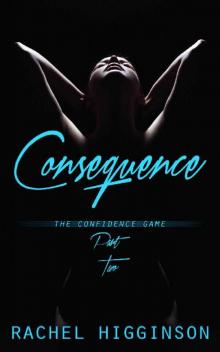 Consequence (The Confidence Game Duet Book 2)
Consequence (The Confidence Game Duet Book 2) Love and Decay
Love and Decay Love and Decay: Revolution Episode Ten (Love and Decay: Revolution #10)
Love and Decay: Revolution Episode Ten (Love and Decay: Revolution #10) Sunburst (Starbright Series)
Sunburst (Starbright Series) Bet on Me (Bet on Love #2)
Bet on Me (Bet on Love #2) Love and Decay: Revolution, Episode Ten
Love and Decay: Revolution, Episode Ten Love and Decay: Revolution, Episode Nine
Love and Decay: Revolution, Episode Nine Constant (The Confidence Game Book 1)
Constant (The Confidence Game Book 1)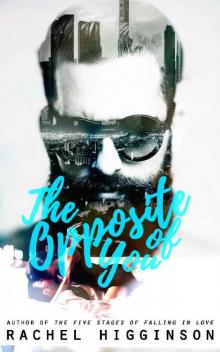 The Opposite of You (Opposites Attract Series Book 1)
The Opposite of You (Opposites Attract Series Book 1) The Reluctant King (The Star-Crossed Series)
The Reluctant King (The Star-Crossed Series) Love & Decay (Season 1): Episode 9
Love & Decay (Season 1): Episode 9 The Problem with Him (The Opposites Attract Series Book 3)
The Problem with Him (The Opposites Attract Series Book 3) Love & Decay (Season 1): Episodes 1-6
Love & Decay (Season 1): Episodes 1-6 Love & Decay (Season 1): Episode 10
Love & Decay (Season 1): Episode 10 Fateful Magic (The Star-Crossed Series Book 8)
Fateful Magic (The Star-Crossed Series Book 8)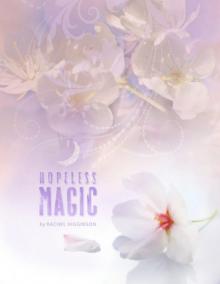 Hopeless Magic (The Star-Crossed Series)
Hopeless Magic (The Star-Crossed Series) Love & Decay (Season 1): Episode 12
Love & Decay (Season 1): Episode 12 Love & Decay (Season 1): Episode 8
Love & Decay (Season 1): Episode 8 Love and Decay: Revolution Episode Nine (Love and Decay: Revolution #9)
Love and Decay: Revolution Episode Nine (Love and Decay: Revolution #9) Love & Decay (Season 1): Episode 7
Love & Decay (Season 1): Episode 7 The Redeemable Prince (The Star-Crossed Series Book 9)
The Redeemable Prince (The Star-Crossed Series Book 9)